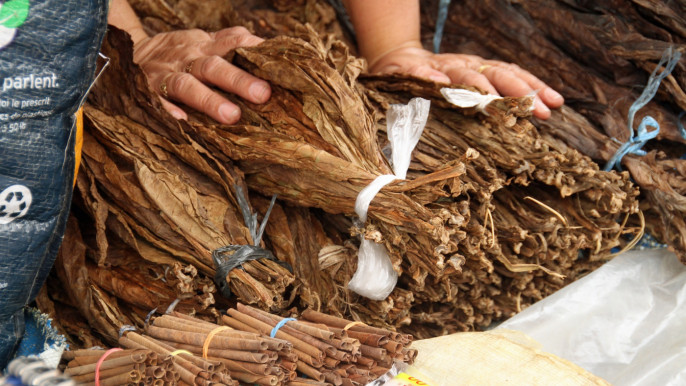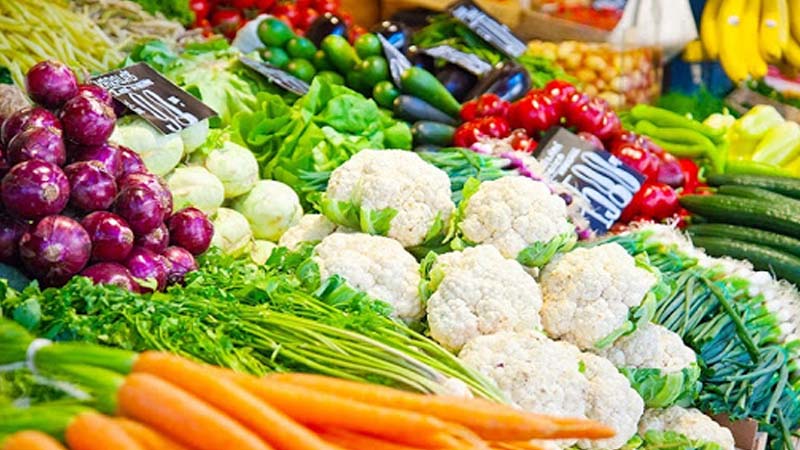Forty-seven-year-old Chasahla Marma has grown tobacco leaves half his life, and almost every season he has found himself indebted after selling out his produce to cigarette manufacturers.
But what else can he do without capital and land of his own?
Chasahla receives seeds from tobacco companies for free and sows them on a swath of 2 acres of leased land along the Sangu River in Thanchi upazila of Bandarban.
As tobacco leaves mature and the arduous curing process completes, agents of the companies grade them according to size, colour, moisture and thickness at the end of April. The payment varies from Tk120-170 per kilogram for different categories.
The payment seems to be good, compared to what he would earn from growing other crops, but little money is left for Chasahla and his family after he pays off the lease money, labour charge for curing and the loan he has taken from the tobacco company for fertiliser and other expenses.
Still, Chasahla cannot think of moving to another crop, such as corn and mustard which grow in the same season, for the absence of financial assistance. Besides, his profit from the yield will depend on whether he himself will be able to transport the produce to Bandarban city across the river, making a three-hour journey on a 70km hilly terrain.
All these challenges appear much bigger than what Chasahla and more than 200 other poor farmers can overcome, being disconnected from the food supply chain, in the remote area of Balipara of Thanchi. So, they stick to tobacco farming even if they do not want to.
The Tobacco Control Law 2005 speaks of formulating rules for discouraging tobacco cultivation. Fifteen years later, the Department of Agricultural Extension (DAE) does not have any clearly-defined mechanism to reduce or stop farming of the plant though the government pledged to make the country tobacco free by 2040.
Anti-tobacco campaigners say Bangladesh is one of the top consumers (35.3% of the population) of smoked and smokeless tobacco products because they are cheaply available here, an observation corroborated by the increase in sales of low-end cigarettes following the imposition of tax year after year.
And cigarettes are cheaper here than in other neighbouring countries, even after high tax rates, because the government has done little to hinder tobacco cultivation, making the raw material available at low costs, they say.
In three years since 2017, tobacco farming came down slightly from 89,000 tonnes to 86,000 tonnes, and the area of coverage fell only by 5,000 acres to 1 lakh acres, according to the Bangladesh Bureau of Statistics.
With no policy supporting them, thousands of farmers are toiling on tobacco fields and at curing sheds day and night, not always to count huge profits but to make ends meet. The largest tobacco company in Bangladesh, British American Tobacco itself has nearly 33,000 registered farmers across the country, as it said in a 2020 report.
"If we could develop a marketing strategy across the country, farmers would have been assured of getting a fair price of vegetables and other crops and stopped tobacco farming," said Md Asadullah, director general of the DAE.
Tobacco companies are providing support to farmers before cultivation, and buying leaves directly from them.
The DAE is conducting a survey to assess how much profit tobacco farmers make, said Asadullah, from which it will devise how to encourage them to grow other crops instead.
The department distributes seeds of maize, sunflower, winter vegetables, onion, potato and boro rice to farmers to grow them in place of tobacco, he added.
Dr AKM Nazmul Hoque, deputy director at the DAE, Bandarban district, said high-value crops like sugarcane, nuts and cauliflower could replace the income from tobacco.
To address the issue of marketing, he said big companies could make investments and work with the farmers.
Tobacco cultivators in Balipara said the distribution of seeds by the DAE was done on a very small scale.
Usha Nu Marma, 32, is one of the few in Balipara who got free seeds from the local office of the DAE before the last season. He grew vegetables on his family land where he had cultivated tobacco for 10 years.
"I had to cut wood from the forest and stay awake throughout the nights during the curing time. The money I earned was not worth it," Usha said.
He, however, feared that making profits was difficult if he sold his yield at the market across the river. Most of the villagers are jhum farmers and they consume what they grow.
"There is hardly any means to make a living here," Usha said.
Like Usha, many farmers in Kushtia are willing to stop tobacco cultivation if the situation remains favourable in future.
Shahin Ali, a tobacco farmer in Kushtia, recently said this














